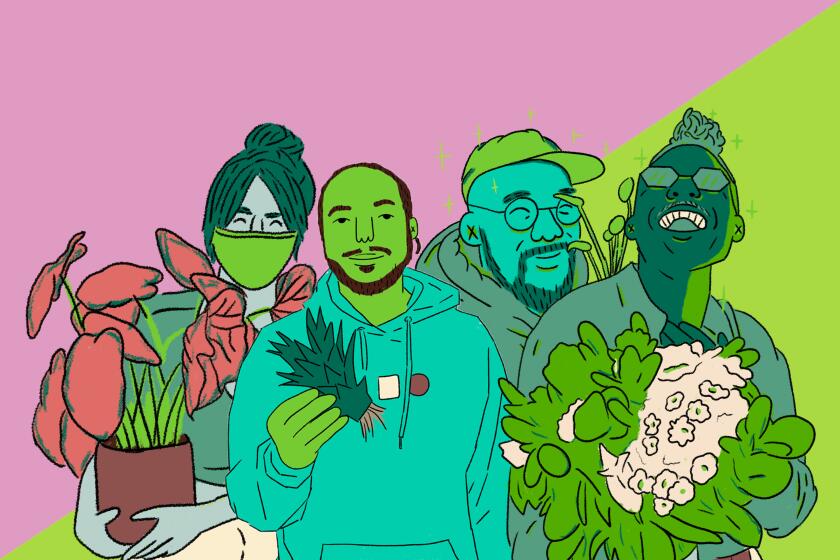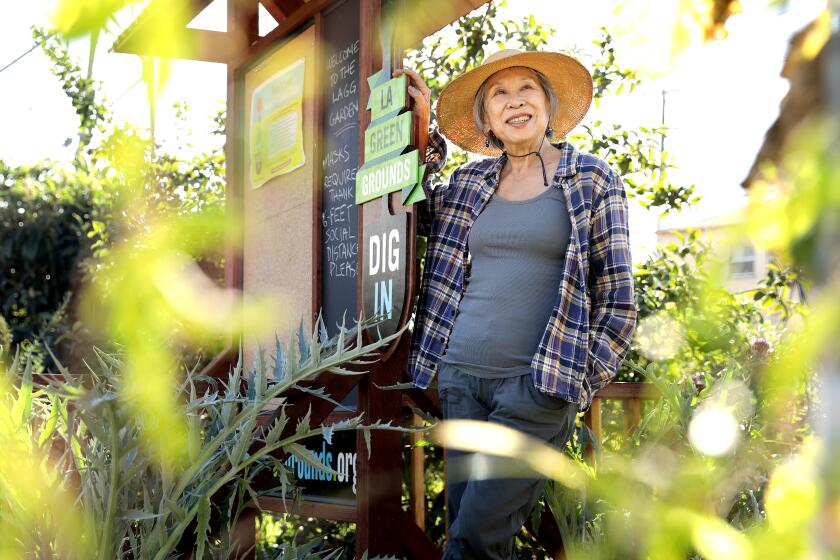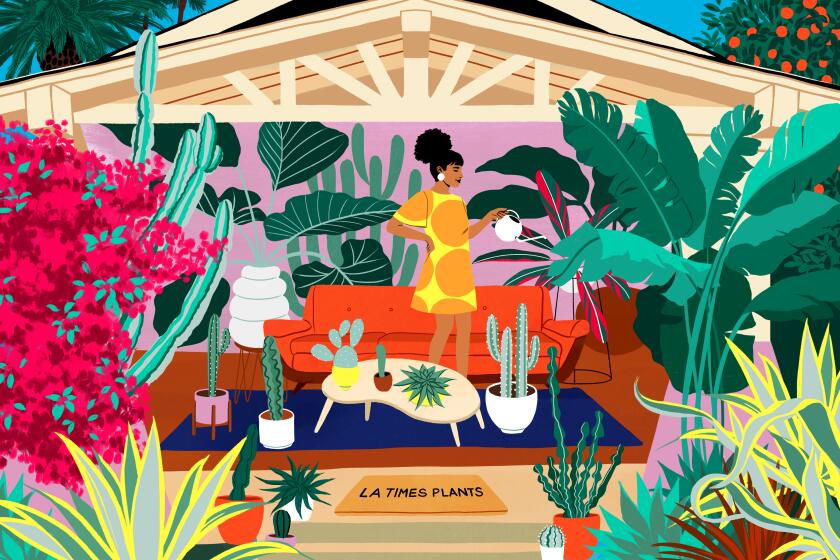She wanted to open a joyful plant shop. It’s now a refuge for the pandemic-weary
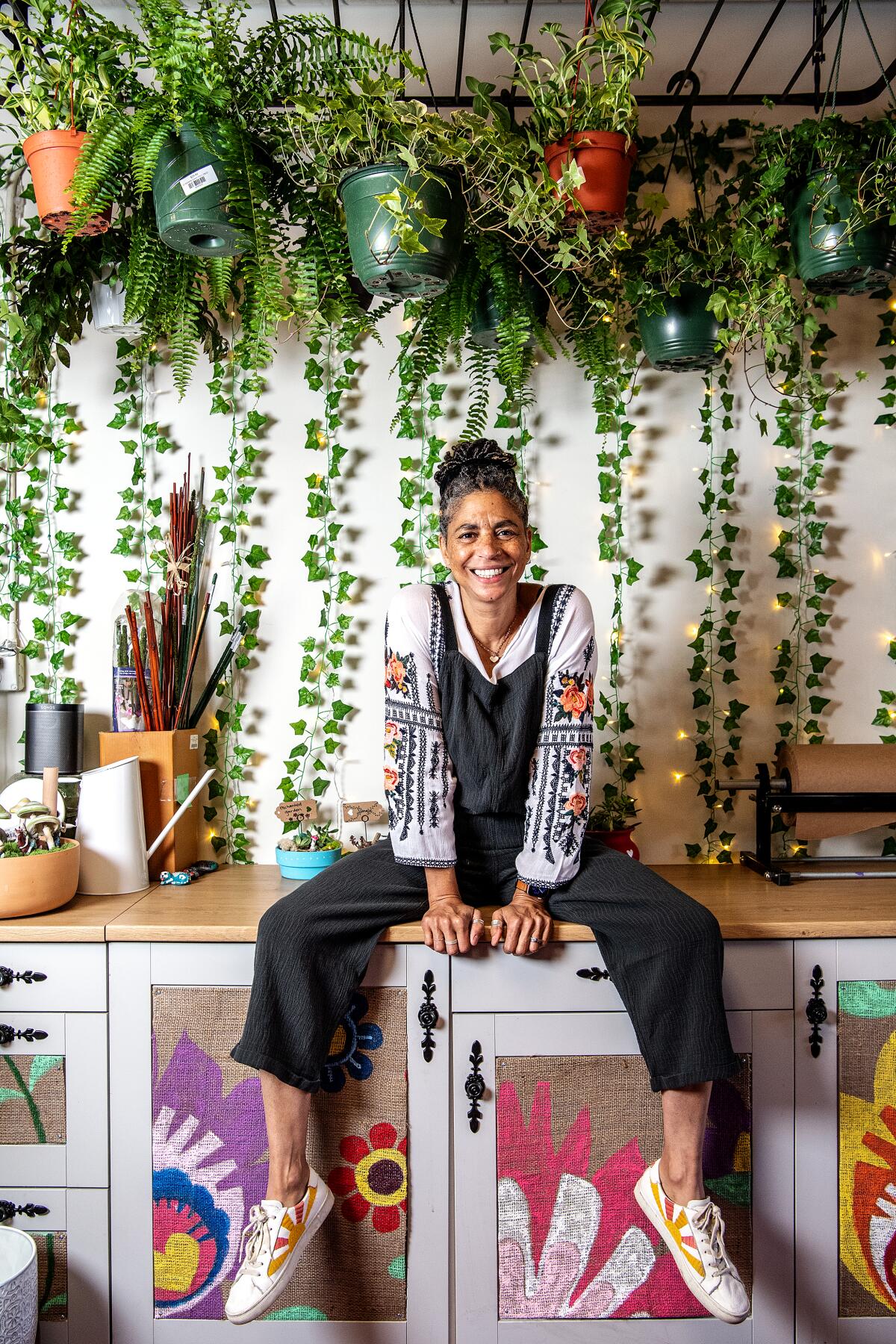
- Share via
This is the latest in a series we call Plant PPL, where we interview people of color in the plant world. If you have any suggestions for PPL to include in our series, tag us on Instagram @latimesplants.
One way to understand Shawna Christian’s joyful aesthetic is to think of her plant shop, Tansy, as organized chaos.
For the record:
1:18 p.m. March 8, 2021An earlier version of this story misspelled Colette Fowler’s name as Collette in the text and Flower in captions.
The Burbank store — with its colorful fair trade garlands, plants, metal bells, mobiles, pom-poms and suncatchers — may be eclectic, but her skill at mixing colors, patterns and prints is the reason why so many customers keep returning.
And at a time when people are spending more time at home than ever, her bohemian store is especially popular with a younger generation of girls who are infatuated with her maximalist decor (more on that later).
In our Plant PPL series, we interview people of color in the plant world, including plantfluencers, plant stylists, floral artists, enthusiasts, experts and garden store owners.
“This is what my house looks like,” Christian said of Tansy, which she opened with longtime friend Colette Fowler in 2019 (the two met as sophomores at Grant High School in Van Nuys). “It’s all about color and plants and fabrics. I am trying to perfect the art of being insanely creative without being claustrophobic. I like throwing different colors and patterns together that shouldn’t go together but ultimately work.”
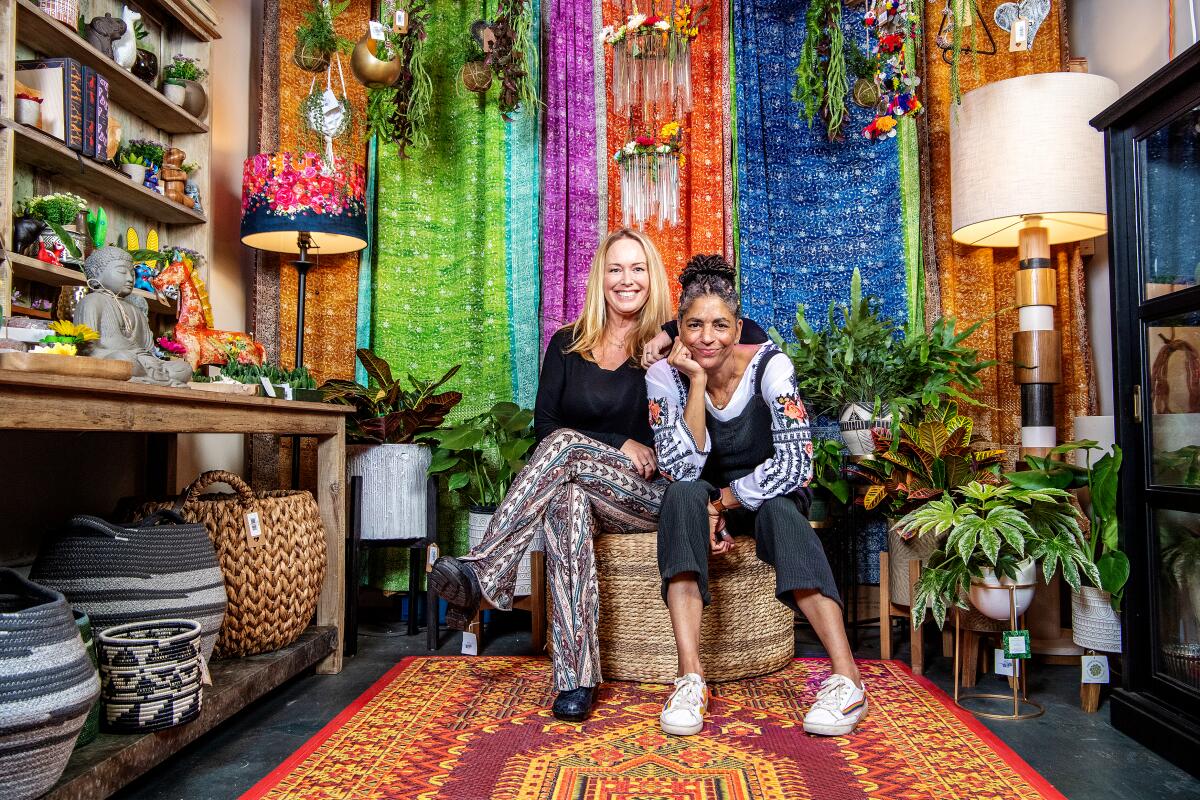
Her professional life wasn’t always like this. After running an IT company for more than 20 years, Christian decided to change careers. “I had raised my kids and put them through school,” she said. “I turned 50 and realized I wanted to do something different before I passed away. So I spent all of my money and opened a plant store.”
The store struggled after the initial stay-at-home order a year ago, but in May, sales soared as interest in houseplants skyrocketed and influencers urged people to support Black-owned businesses amidst increased racial awareness across the country.
“Our followers and customers, even Google and Yelp all reached out to us, wanting to promote us because we are a Black-owned business,” she said.
In South Los Angeles, where it is easier to find fast food than an apple, master gardener Florence Nishida is on a mission to teach the community how to grow their own food. “There’s a lot more than peas and carrots,” Nishida says.
She’s not complaining. Still, she said, the attention has been difficult for her to digest. “I’m proud of being Black,” she said. “But it’s hard for me to grasp that our revenue doubled solely based on my skin color.”
She added, “I would like to be revered as a female-owned business too.”
In a recent Q&A, Christian weighed in on plant matters and how the pandemic has affected her small business:
It’s a little overwhelming when you first walk into Tansy. How would you describe your style?
It’s bohemian and ethnically driven. It’s more than just plants. Ninety percent of our home decor is from a charitable organization or by artists from around the world. We represent almost every country on this planet. I love that people come in and ask us, ‘Do you have anything from Portugal?” and we can say ‘Yes.’
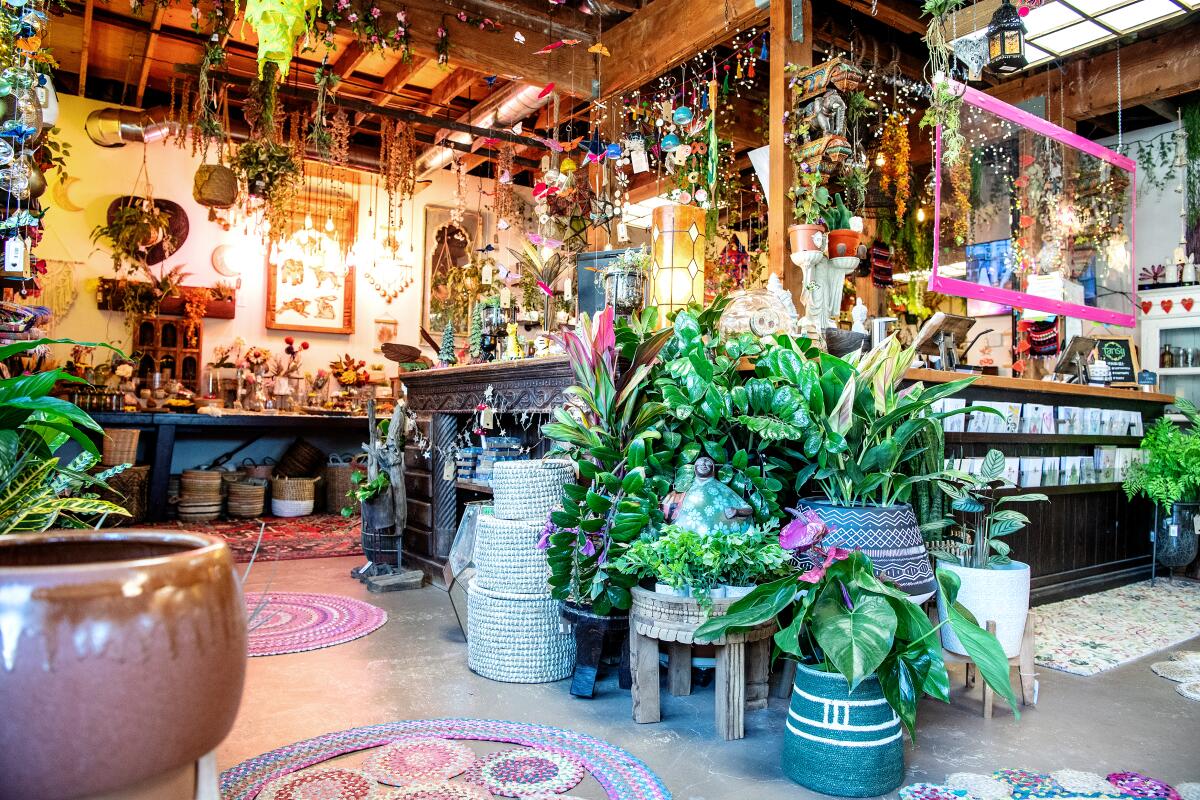
Any plant tips for new plant parents?
One of the first things I tell people who are new to plants is to slow down and take their time. It’s a process. People want to buy 15 new plants, but all they are doing is creating a situation that is going to overwhelm them. You can do things to your house without spending a ton of money. We have a discount area outside that is an “adoption center” — plants that are not dead but need a bit of attention and love. Go slow and find joy in the little things. Spend $10 on a 4-inch pothos and a terra cotta pot that will make you smile. That’s a great way to start the process.
Do people really come in and buy 15 plants at once?
Yes! Our plant sales have gone through the roof. My husband joked that “only you would open a shop right before the pandemic and have the one thing that everyone wants.”
What are your customers looking for?
Before the pandemic, people wanted something eclectic and one of a kind. Now, they want plants for Zoom meetings, plants that clean the air, something to take care of. People have been forced to slow down. They are really looking at their homes while sheltering in place and want to do something to make them better.
Best plants for first-time plant owners?
ZZ plants, sansevieria, dracaenas, certain pothos and philodendrons (not neon and Snow Queen), and peace lilies (but be careful as they are toxic for pets and children).
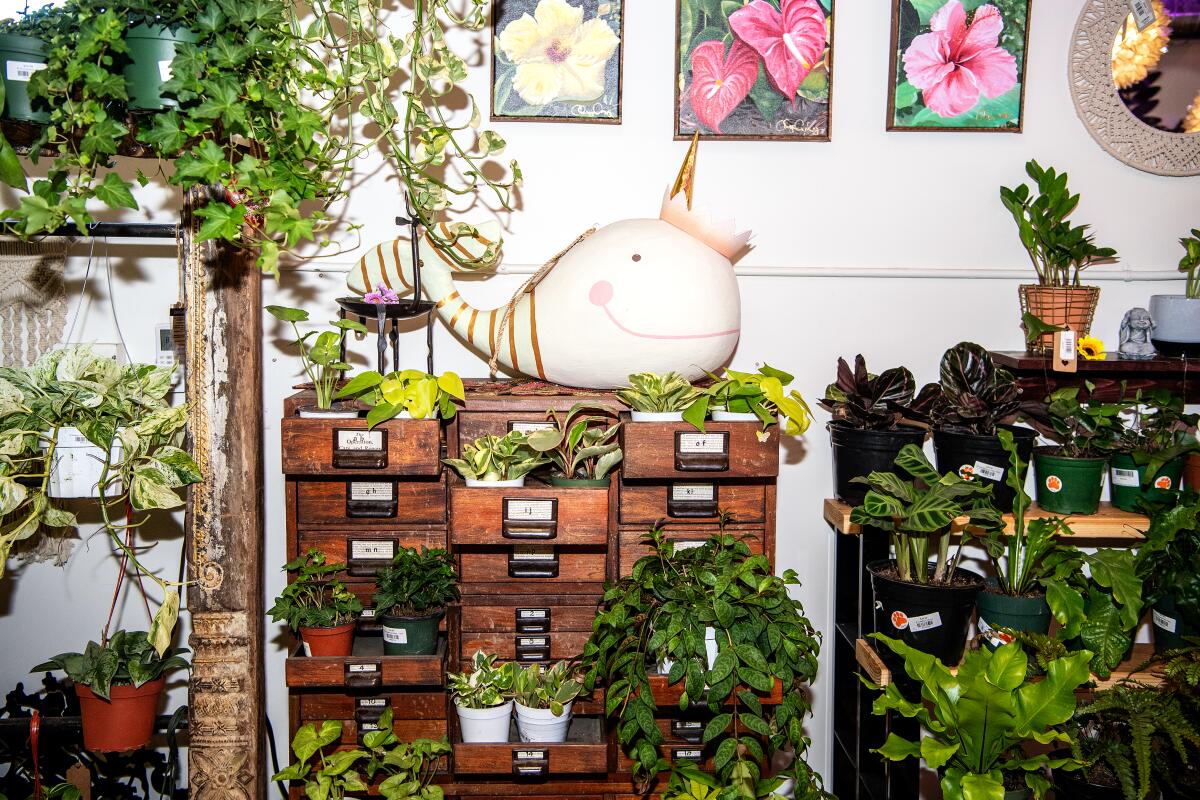
Do you have a business philosophy?
The shop is like my home. It’s a sanctuary. When people come to my home, they are amazed by how it makes them feel. I want people to come into the store and feel transformed too. I want them to buy something that makes them feel safe and happy and makes them smile. That’s what this shop is based upon.
Thirsty? Lack of light? Need to get rid of gnats? Here are the answers to the most frequently asked questions about houseplants.
As a woman- and Black-owned business, do you feel like you’ve had hurdles that others have not?
That’s a yes-and-no answer. Yes, there were struggles for me to do something like this but I don’t think it’s because I’m a woman or I’m Black. I say that with a caveat. I don’t want to say that it’s not an issue for other people. I had already run a business for a few decades and knew what to do. If I hadn’t had all of that experience, it would have been daunting for me to start a business in California. There are not a lot of resources for women and people of color. The ones that do exist are not easy to find. I’ve been in business for two years, and I just found out about the California Women’s Business Center. I learned about them from a friend who had already been in business for 10 years. You know how we have 911? Did you know you can call 211 for social and mental help? No one knows this. I feel the same way about these groups that are designed to help women and minorities. It’s so hard to find these places. I feel like the odds are against you before you even begin.
Favorite plant?
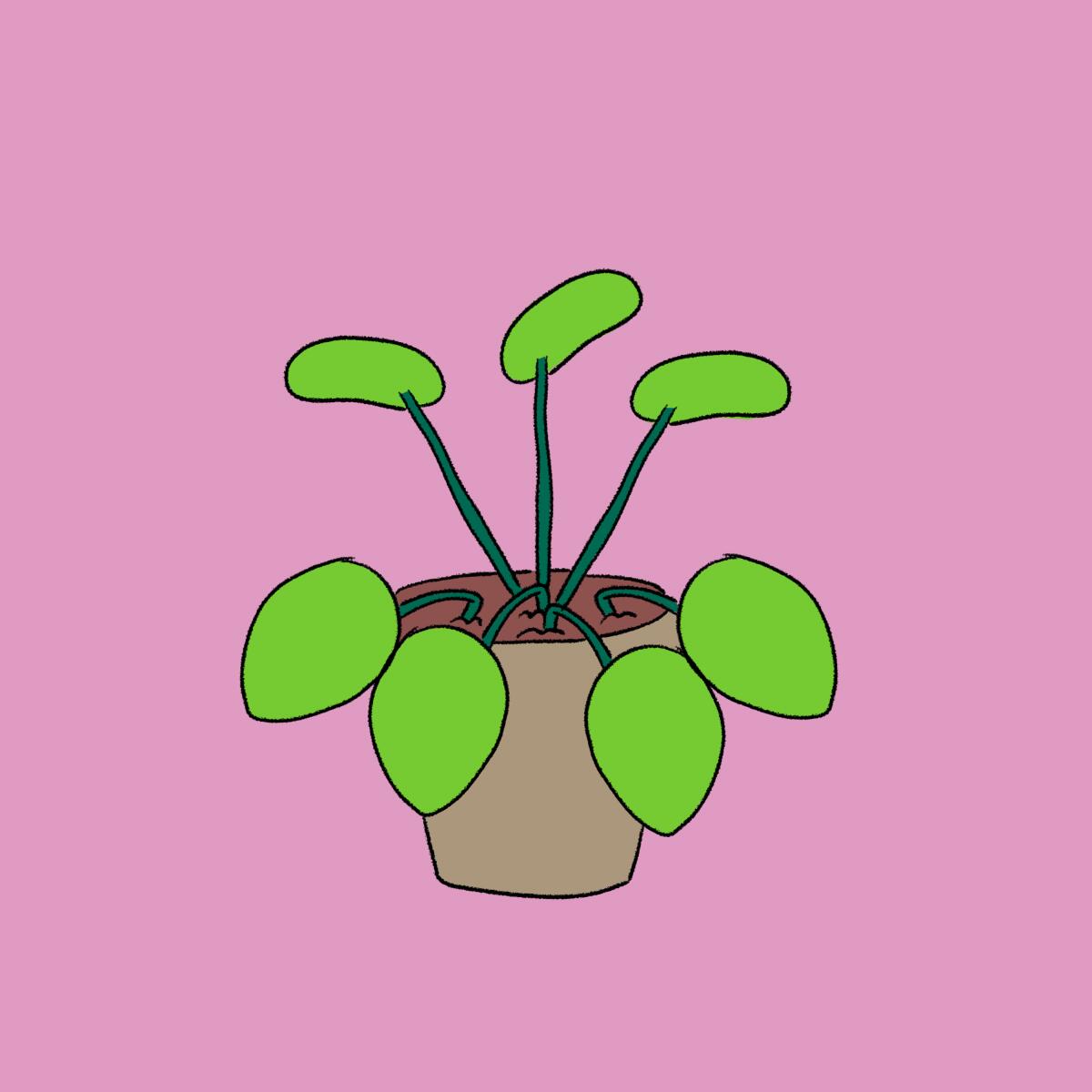
Pilea peperomioides, or Chinese money plant. The first day we opened, we put 4-inch pileas in the window of the shop. They have grown up to a foot tall. Those are our babies, and they have such a cool story behind them. For a long time, you could only get them from people who pulled out the babies and gave them to you as a gift. About three years ago, nurseries realized that people loved them — they were all over Pinterest — so they started selling them. They are known as the friendship plant because you can donate a baby from the mother root system of your plant to a friend.
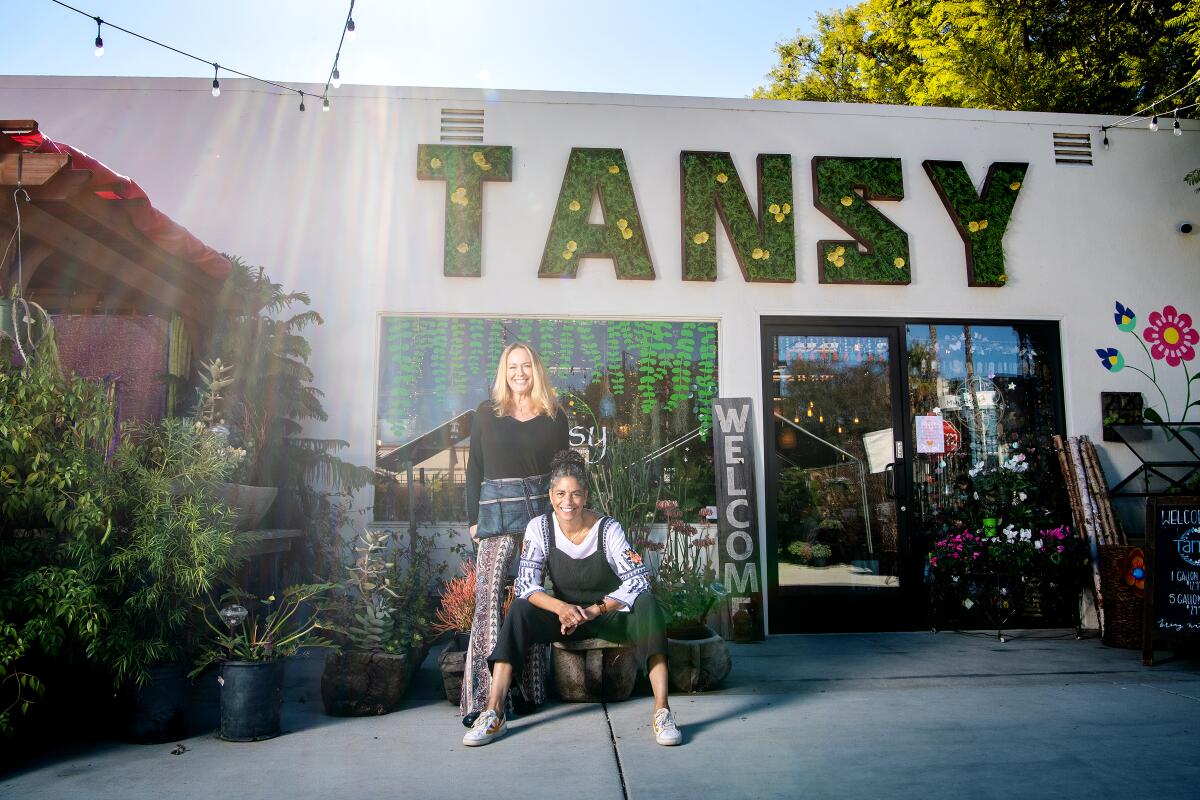
Before the pandemic, you hosted a lot of events. Do you see yourself as a community space?
We were doing birthday parties and baby showers, weddings, macrame workshops, terrarium-building workshops. There is definitely a community vibe with our shop.
One of my favorite things about our store is that we have a group of preteen girls around 9-13 years old who love the boho look, color and plants. They come in on the weekends and help out. We teach them about business, and they get to learn customer service. They learn about plants and offer advice to the new plant parents. They also get to see that it’s females running the show. It has been amazing.
What do you look forward to doing once pandemic restrictions have lifted?
Not being hindered by what we can do. I really took our freedoms for granted. I’m looking forward to not being nervous anymore and feeling like we can all go on with our lives again. People walk in the door and thank us for giving the neighborhood some color and creativity. It will be that way again.
More to Read
Sign up for The Wild
We’ll help you find the best places to hike, bike and run, as well as the perfect silent spots for meditation and yoga.
You may occasionally receive promotional content from the Los Angeles Times.
